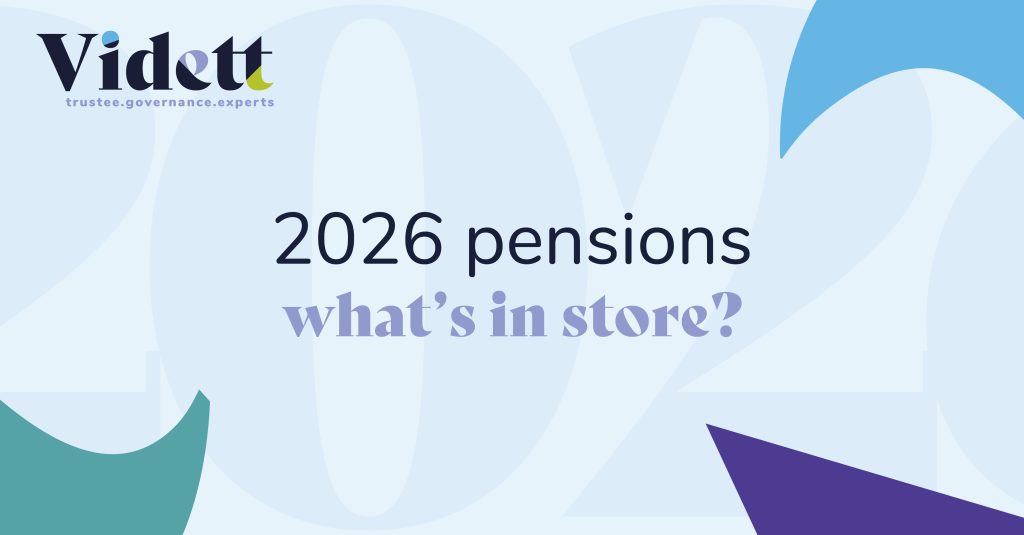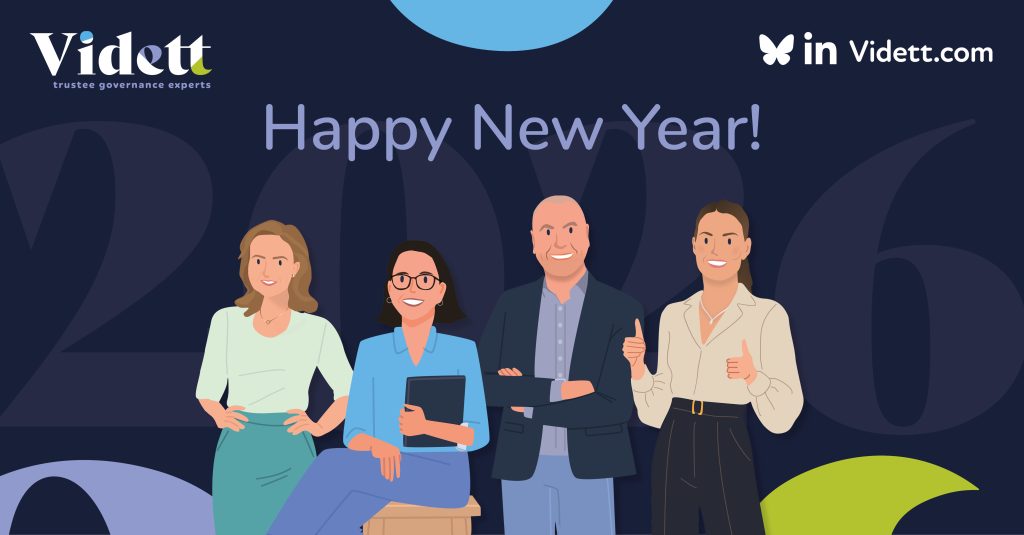In the first part of our series on artificial intelligence (AI), industry voices Albana, Simon and Duncan helped me explore the different types of AI, it’s impact on the pensions industry both now and in the future and how we’re utilising it at Vidett.
This time we’re discussing the threats and opportunities that AI brings, the importance of data security when we use it and whether AI can every truly replace human expertise in trusteeship and the wider pensions industry.
What do you see as the biggest threats and biggest opportunities of AI within financial services?
Albana: AI has presented and continues to present transformative opportunities for the financial services industry. From a compliance perspective, AI-driven RegTech tools offer sophisticated solutions for transaction monitoring, reporting, and horizon scanning. However, these opportunities don’t come without their own inherent risks. These include algorithmic bias, lack of model explainability (particularly in deep learning models), data privacy, and regulatory uncertainty. The black-box ‘hallucinations’ nature of some AI models can make it difficult to ensure accountability and alignment with the FCA’s principles of integrity and fair treatment of customers.
Criminals also have access to AI and its capabilities. This poses a challenge to firms to ensure their systems and controls, as well as their staff are up to date with this evolving technology and its risks. Many firms are investing in AI specific staff training to ensure their workforce has sufficient technical knowledge as well as awareness of safe and ethical use of AI.
To harness the potential of AI responsibly, firms must implement robust governance frameworks, maintain oversight of model performance and ensure alignment with emerging UK and international regulatory standards. The level and method of AI implementation will vary per firm; so, each firm should conduct its own risk assessment of inherent and residual risks to its control framework from the exposure to and implementation of AI.
Security of data needs to stay at the forefront of our minds when considering advancements in AI. To what extent has this already impacted Vidett’s development in this area?
Simon: While we don’t hold vast amounts of member data, we do manage a significant volume of sensitive client information. Ensuring the security of this data is always at the forefront of any technological changes we implement. We have taken deliberate steps to ensure that our team only has access to properly sanctioned tools, allowing us to control how and where the data is used.
In today’s landscape, nearly every cloud application provider offers some form of AI integration. However, before we grant access to these tools, we conduct thorough evaluations to fully understand them alongside the nature of the data we hold and how that data will be processed and stored. This cautious approach ensures that we don’t adopt the latest AI offerings without a comprehensive understanding of their implications.
Our priority is to ensure that any AI technology we adopt is safe, secure, and adds tangible value to our teams and our clients.
Will AI ever replace the value add of a human mind and in particular a pensions expert and/or trustee?
Duncan: We debated this internally recently. I think some of what we do can definitely be enhanced by using or integrating AI. I think the role of trustee can often be seen as being similar to that of a risk manager – weighing up the pros and cons before making a decision. So, in that regard, you can see AI being capable of reliably doing that in the medium term. However, some of what we do is so nuanced, so complex, and so ultimately linked to the human psyche, that I don’t know whether we can ever truly be replaced in every decision. I do also wonder how innovative AI will be? How capable it will be of creating on its own accord – not because it is asked to solve something, but because it wants to create, dream or solve, for the benefit of society. Lots of what we do is sparking an idea, innovating or creating. Will it be able to do that?
Thank you to Albana, our external contributor for this article. If you’d like to speak to Kat, Simon or Duncan about the opportunities and threats afforded to pensions schemes by AI, why not get in touch?




